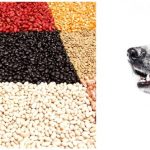Hazelnuts, also known as filbert nuts or cobnuts, are one of the well-loved nuts because of their impressive nutritional value. Let’s add the fact that they also have an exquisite taste – a combination of crunchy, sweet, and buttery. It is not so hard to understand why even dogs like them, too!
But is it okay to give hazelnuts to your dog? As we know, there are bad and good nuts for dogs. Keep reading to find out whether hazelnuts are one of the good nuts for canines.
Can Dogs Have Hazelnuts?
The quick answer is yes, dogs can eat some hazelnuts. If your pooch just ate a few and you’re worried that they may poison him (since walnut poisoning can be quite deadly for dogs), keep calm. Hazelnuts are different from walnuts and they are among the safe nuts for Fido!
It would not hurt to give Fido some nuts once in a while. Just make sure they are finely chopped and free from salt and additives. Avoid giving your pooch any flavored nuts, especially those with garlic and onion powders or spices.
While hazelnuts are generally safe, there are still a few risks involved. First, there is the possibility that hazelnuts can be a choking hazard. Hazelnuts are about the size of a marble so they may cause a blockage in dogs, especially in puppies.
In the case of old dogs, hazelnuts can get stuck in their intestines because they tend to gobble down large portions of foods easily.
One more concern is the fact that these nuts are quite hard to break and can damage a dog’s teeth. If you want to give your dog hazelnuts, make sure they are finely chopped.
Thirdly, hazelnuts are indigestible and this is because of their phytate or phytic acid content. This is the same kind of acid present in seeds, grains, beans, and legumes. Phytate is an anti-nutrient, meaning it can interfere with the absorption of vitamins and minerals in the body.
To make hazelnuts easier to digest, soak or sprout them first. The process of soaking nuts as well as other phytate-rich foods helps in removing these anti-nutrients.
Simply place the hazelnuts in a glass bowl filled with water. The bowl should be left covered at a room temperature for around 8-12 hours. Since hazelnuts are hard nuts, you really need a lot of time to soak them.
The last but not the least concern about hazelnuts is their fat content. Let’s not forget that almost all nuts contain high amounts of fat and hazelnuts are not an exception.
Based on The National Academies’ daily recommended allowance of fat for dogs, an adult dog weighing 33 pounds can have as much as 14 grams of fat. Puppies can do well with 21 grams and pregnant dogs can have as much as 29 grams. For a nursing dog with around six puppies, around 67 grams of fat is still acceptable.
Supposing your dog consumed around 10 pieces of hazelnuts, he already acquired 9 grams of fat. It’s not more than the daily recommended allowance, but don’t forget that he needs to eat other food as well that day.
Benefits of Hazelnuts for Canines
Talking about the health benefits of hazelnuts, the pros outweigh the cons. They may be high in fats but they are actually low in cholesterol and sodium. In fact, those fats are not even bad fats. They contain around 79% of healthy monounsaturated fat and only 4% of saturated fat.
It’s true that they contain the anti-nutrient phytic acid but it’s also true that hazelnuts have a lot more to offer. Below are just some of the many amazing health benefits of these nuts:
- They are good for regulating blood pressure. Hazelnuts contain all the essential minerals to help regulate a healthy blood pressure, not just in humans but also in pets. These are calcium, magnesium, and potassium. Some may not be aware of this, but canines can also suffer from a high blood pressure. When their heart works harder than normal to pump blood to the body, the blood vessels, the artery walls, and the heart itself can be stressed.
- They promote a healthy skin and coat. Hazelnuts are rich in vitamin E, which is beneficial for keeping the skin well-nourished. A cup of chopped hazelnuts contains around 17.3 mg of vitamin E. Dogs need vitamin E but they don’t necessarily need a supplement. You can supply your dog’s Vitamin E requirement by providing him with foods that naturally contain it. Nuts happen to be one of the best sources of Vitamin E.
- They are a healthy source of protein. This macronutrient is essential for dogs as it plays many critical roles in their body, similar to humans. Dogs need protein for tissue and muscle-building, for energy, and for immune function. A 100-gram serving of hazelnuts contains as much as 15 grams of protein.
- They can prevent cancer. The antioxidant in hazelnut is known to protect against cancer. This antioxidant is the phenolic compound, which is pretty common in plants and herbs. The natural phenolic compound has chemo-preventive and chemotherapeutic effects in the body. Like us, dogs are also susceptible to cancer but as with humans, many types of cancer can be prevented in canines given a healthy diet and lifestyle.
- They keep the brain sharp. The amino acids and the good fats in hazelnuts are essential for healthy brain functions. Studies also suggest that they can prevent Alzheimer’s because of their ability to enhance brain activity and memory. Senior dogs could suffer from cognitive dysfunctions.
Just a tip for buying hazelnuts – you will know they are of the best quality if the kernels look crisp and plump. For those that are still in their shells, ensure that they are free from holes and cracks. To make them last, store them in an airtight container in the fridge.
Conclusion
Small quantities of hazelnuts are safe for dogs. Your pooch will surely be fine if he scooped up a few hazelnuts from the floor. However, that does not mean that it is a good idea to add some nuts to a dog’s daily diet. Continue giving your dog a healthy diet and only offer nuts occasionally.





















